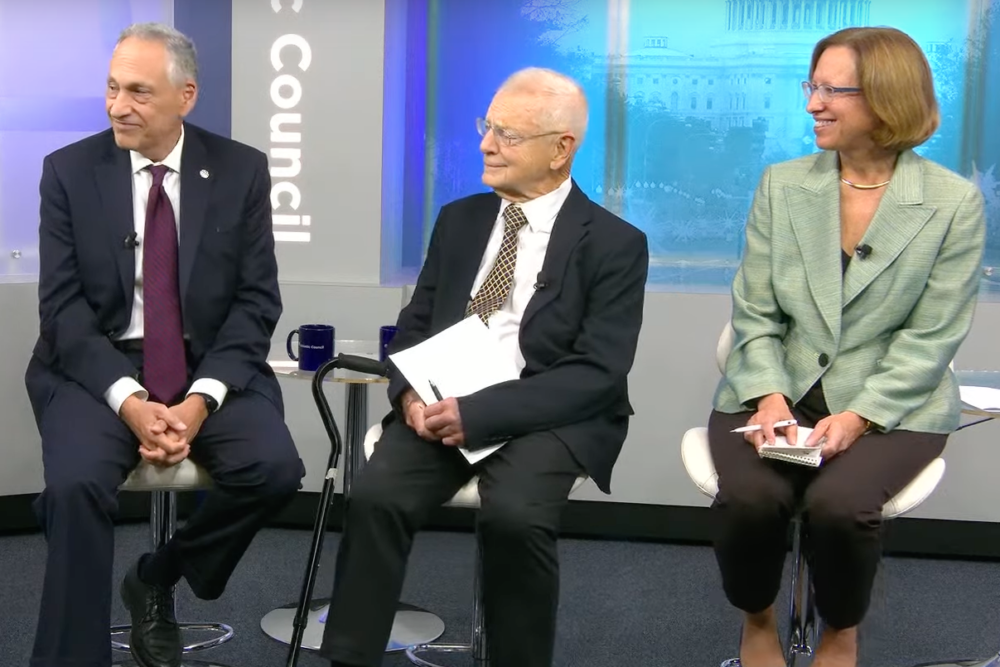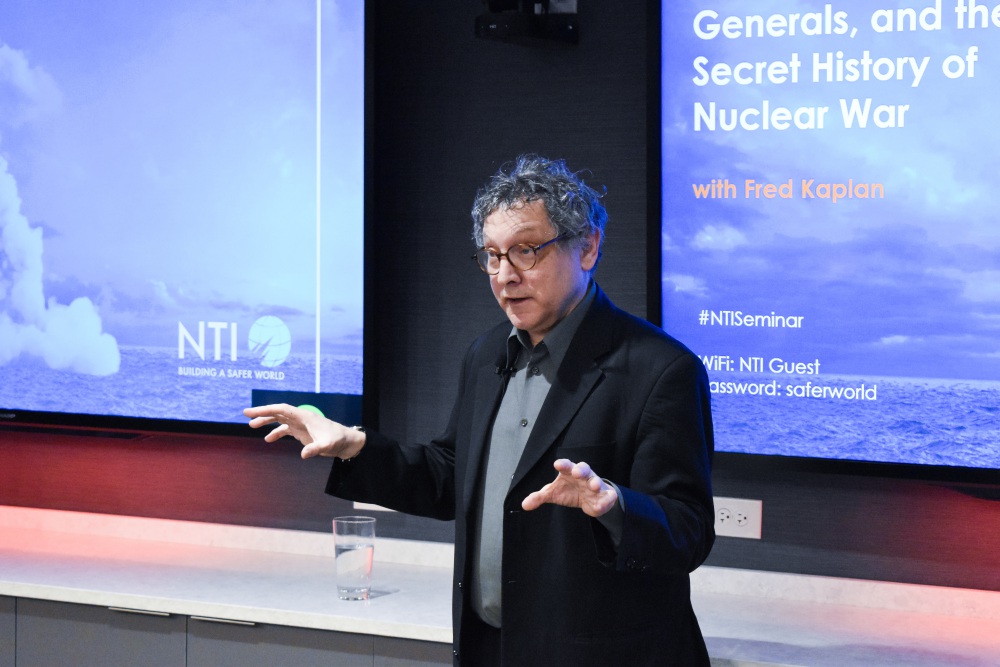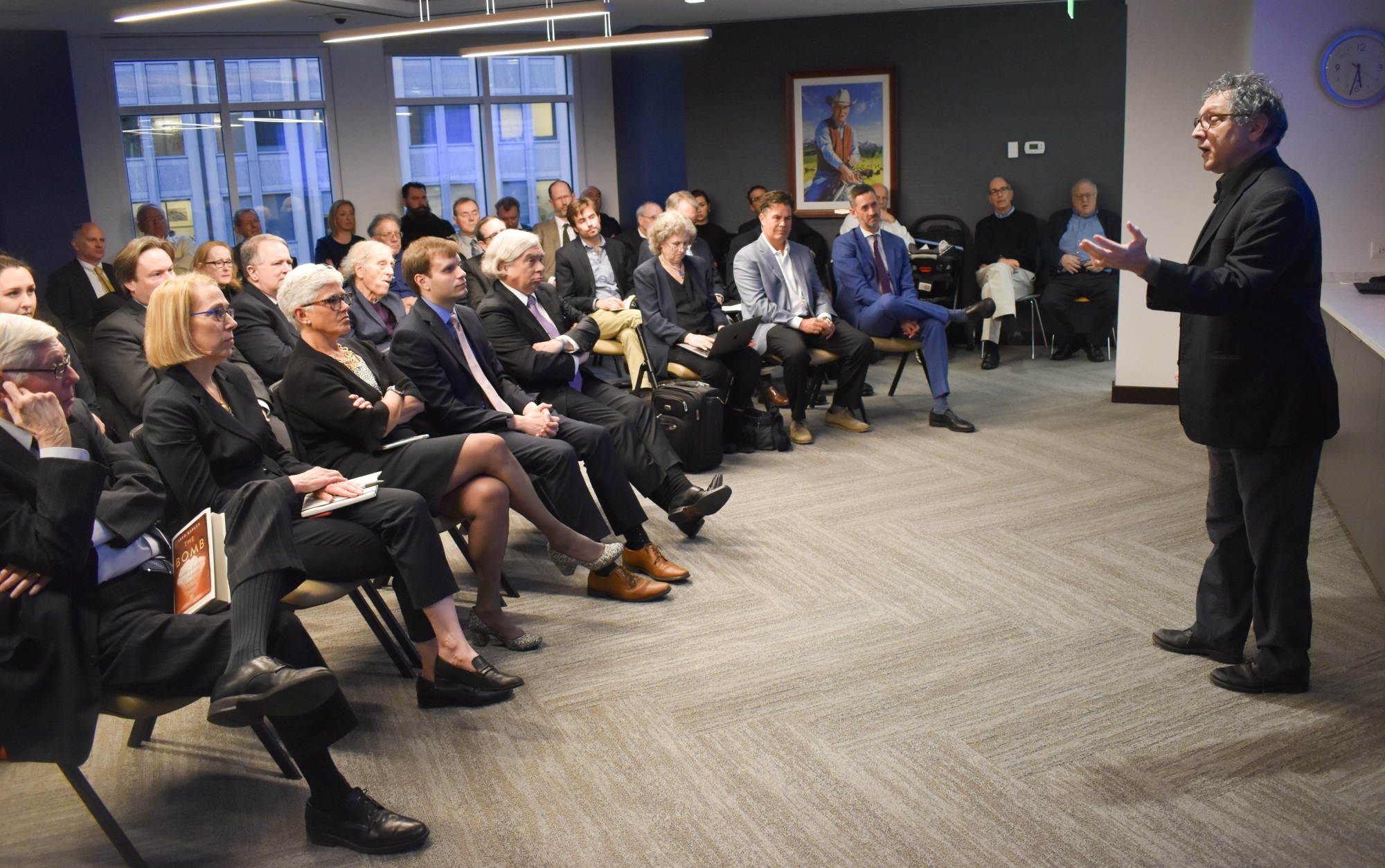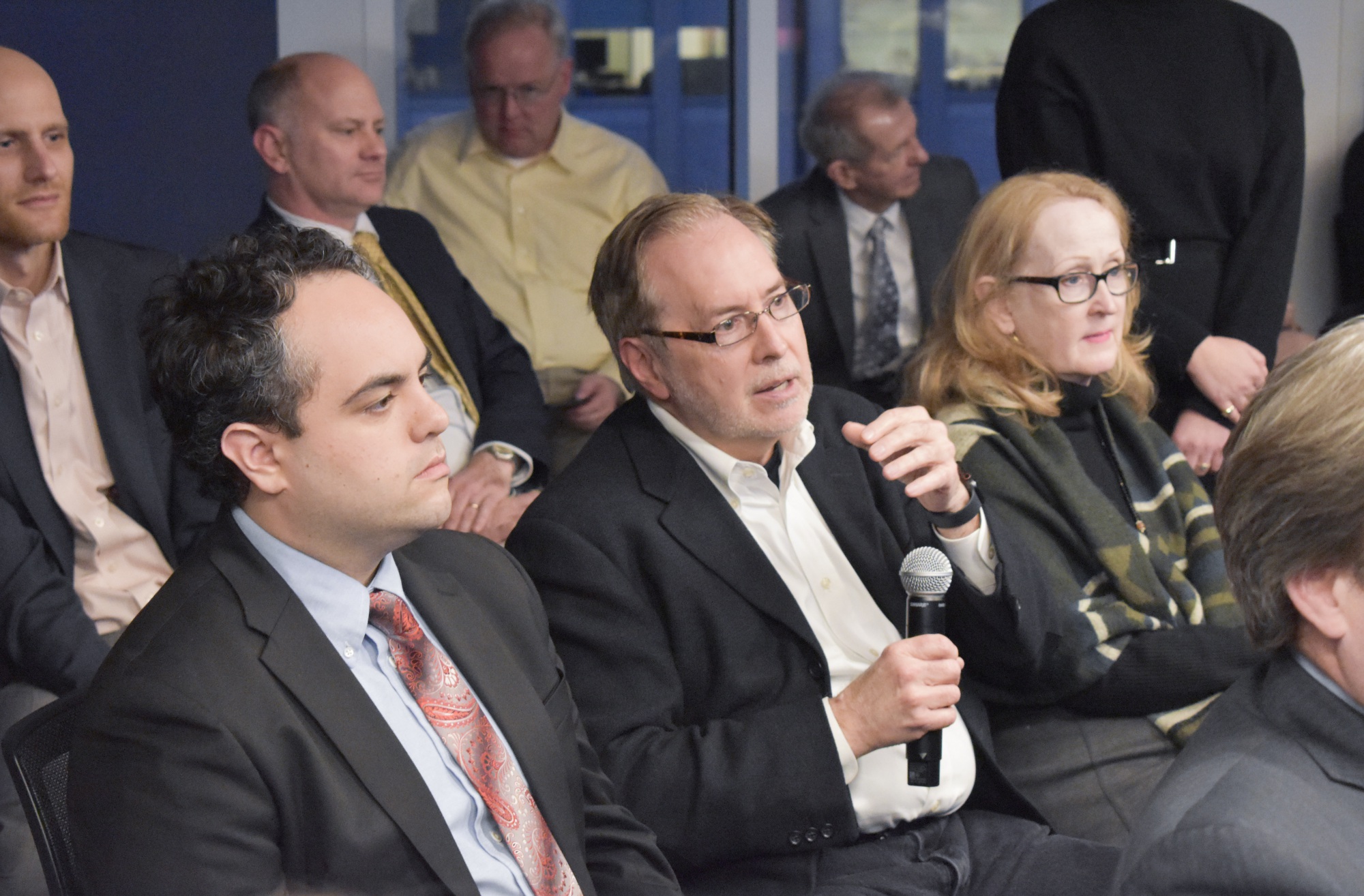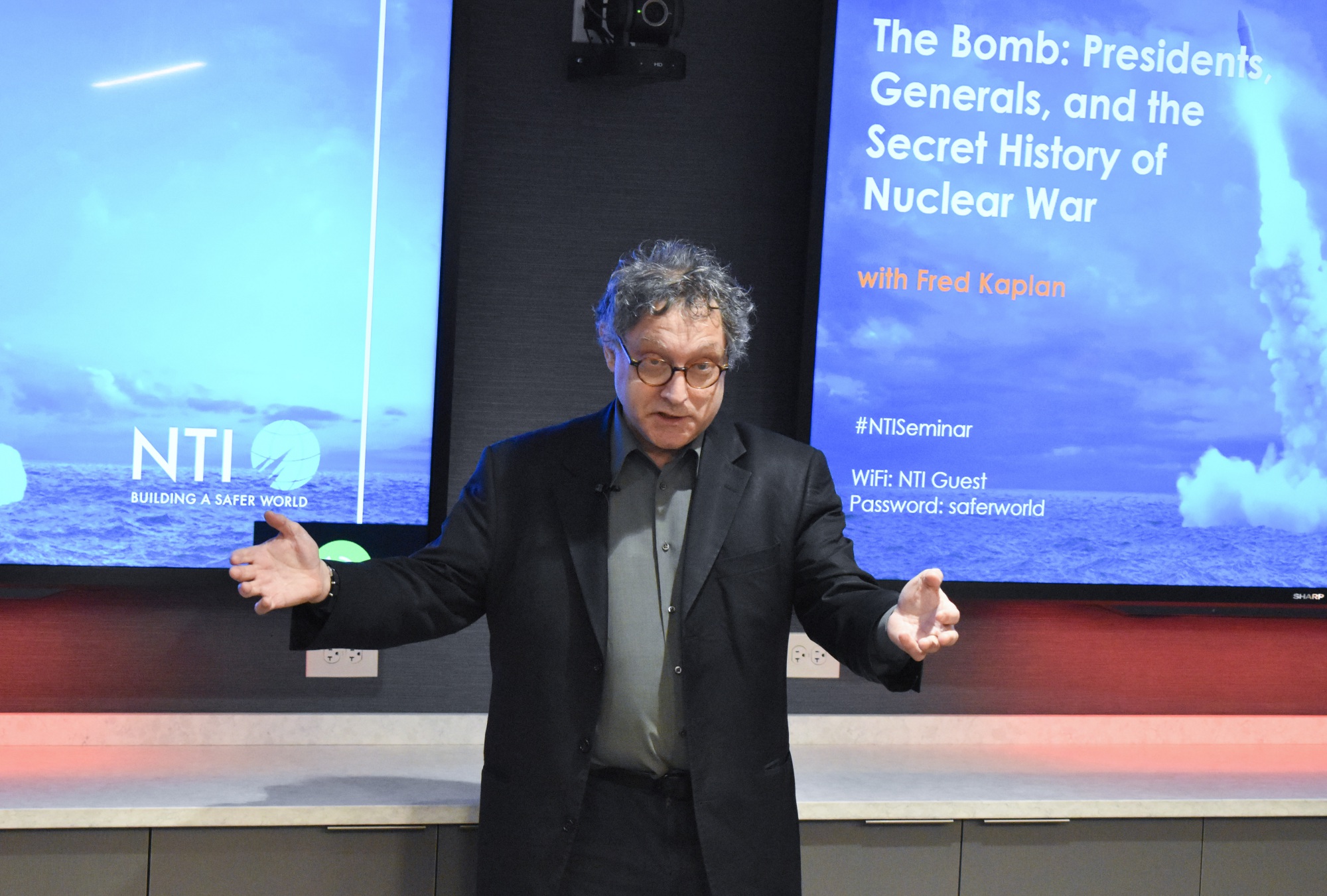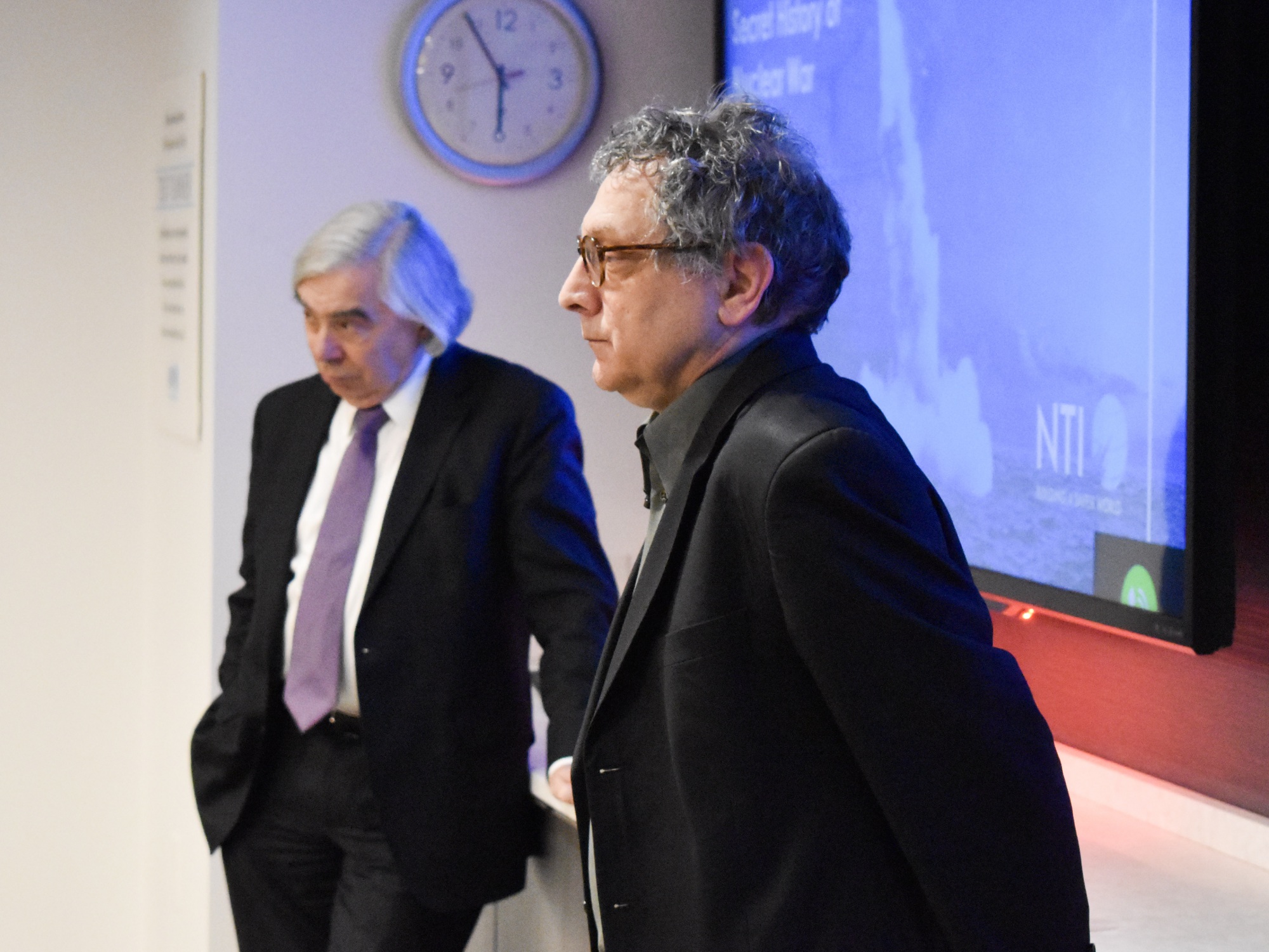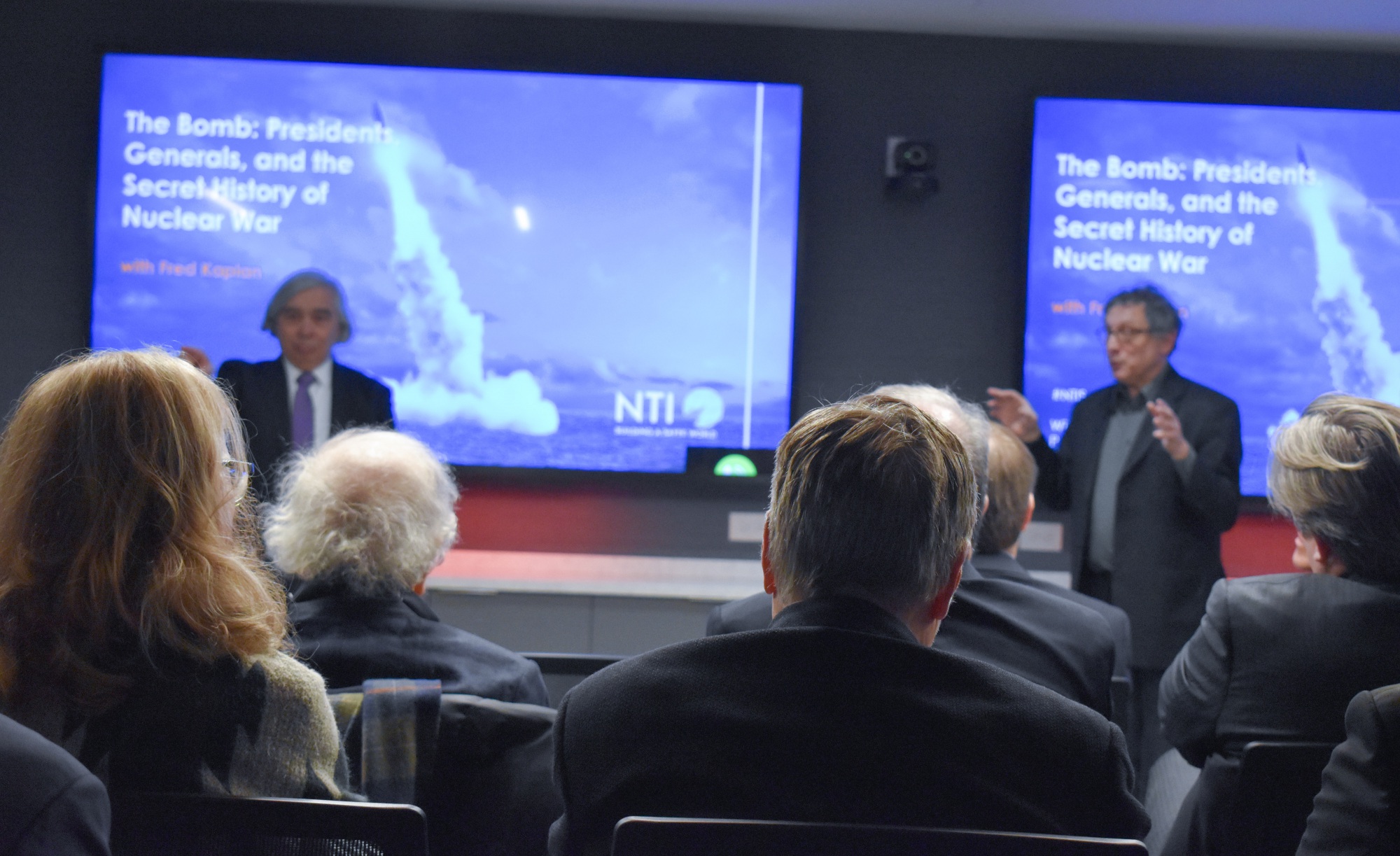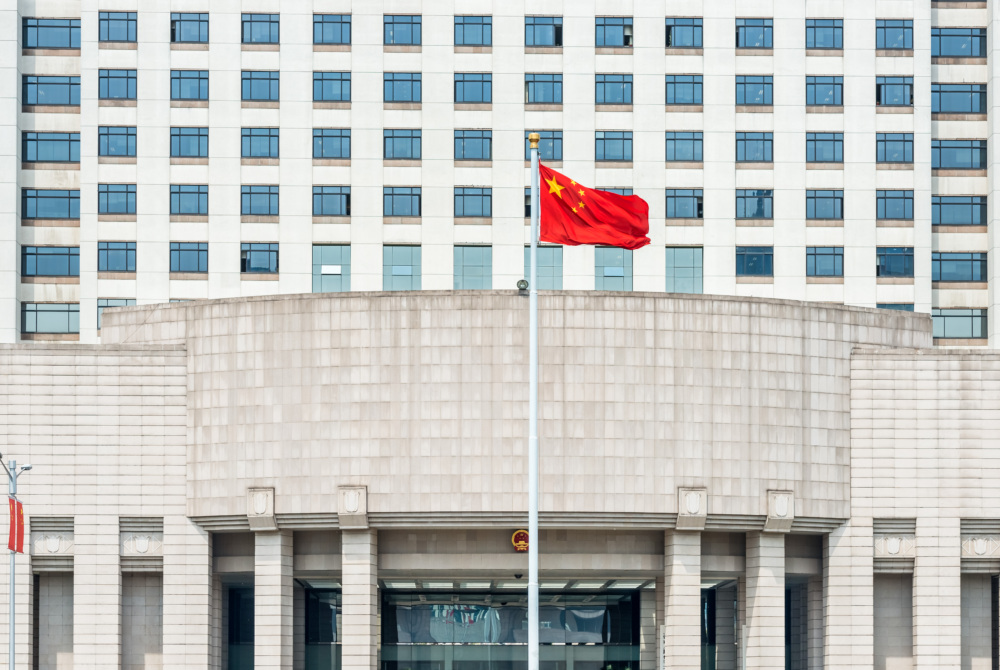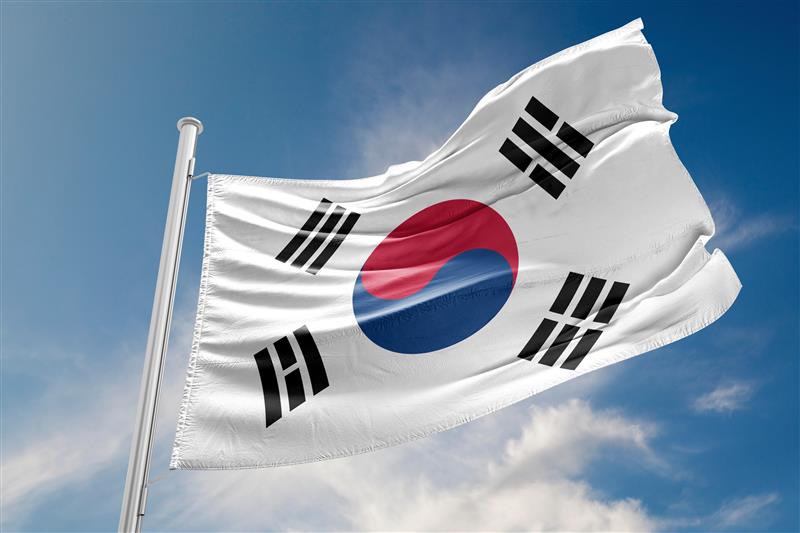This post
was written by Luke Radice, an intern with NTI’s Global Nuclear Policy
Program. Originally from Boise, Idaho, he graduated from Claremont McKenna College
in 2019 with dual honors in International Relations and History.
In the decades since the end of
the Cold War, the American people, by and large, have not considered nuclear
war to be a significant threat. Despite a lack of public attention, however, the
threat of a nuclear exchange has persisted. Pulitzer Prize-winning journalist
and author Fred Kaplan chronicles how American
presidents and national security officials have thought about and threatened
nuclear war from the early Cold War to today in his new book, The Bomb: Presidents,
Generals, and the Secret History of Nuclear War.
Speaking to a packed house at the
latest NTI Seminar, Kaplan used The Bomb
as a backdrop to provide an historical overview of U.S. nuclear policies, from both
theoretical and operational perspectives, with particular emphasis on the vital
role played by various presidents in pulling the nation “out of the rabbit
hole” and away from the brink of nuclear conflict.
Kaplan’s first example was President
Kennedy, who actively ignored the hardline advice of his advisors during the
Cuban Missile Crisis. Ultimately, Kennedy decided to negotiate secretly with
the Soviets and agreed to remove U.S. nuclear-armed missiles from Turkey. Only Kennedy’s
closest confidants knew about this secret agreement, while administration officials
told the rest of the country that the Soviet Union capitulated in withdrawing
its nuclear missiles from Cuba with no quid pro quo. Kaplan noted that historical
evidence suggests that if Kennedy had followed the advice of his national
security team, the odds of the crisis escalating into nuclear war were
extremely high.
Kaplan then turned to the beginnings
of U.S. nuclear policy, when the government’s approach was best described as
“bomb everything.” In those days, official U.S. policy in response to any
potential Soviet aggression—such as a conventional land invasion of NATO
territory—would be to launch a massive nuclear strike on targets that had been
pre-selected in the Soviet Union and even China (even if Beijing had no role in
the conflict). President Eisenhower’s Secretary of State, John Foster Dulles,
labeled the fundamentals of this doctrine “massive retaliation.”
Over time, as the Cold War
developed, the strategy of “massive retaliation” was ostensibly abandoned in
favor of “limited” nuclear options that were inserted into the war plans.
However, even “limited” options allowed the use of hundreds of nuclear weapons
and risked a quickly escalating, all-out nuclear exchange. As Kaplan noted, “There
have always been two levels [to U.S. nuclear policy] – the political level,
where there are lots of very sophisticated arguments about doctrine … and then
at the lower level, what was really going on was the exact opposite.”
Kaplan concluded with a
discussion of contemporary developments in U.S. nuclear policy. Although the
number of U.S. and Russian nuclear weapons has been reduced significantly in
recent decades, many of the guardrails – in particular, arms control agreements
between the United States and Russia – have
been dismantled or are at risk of cessation. In addition, for the first
time since the end of the Cold War, there is an ongoing public and
congressional debate about whether the president should maintain “sole
authority” over whether to use nuclear weapons. Nearly three decades since
the end of the Cold War, Kaplan makes clear that nuclear policy debates, and
the threat of nuclear weapons themselves, are as relevant and consequential as
they were when Kennedy and Eisenhower were in charge.
Watch the full seminar here.
